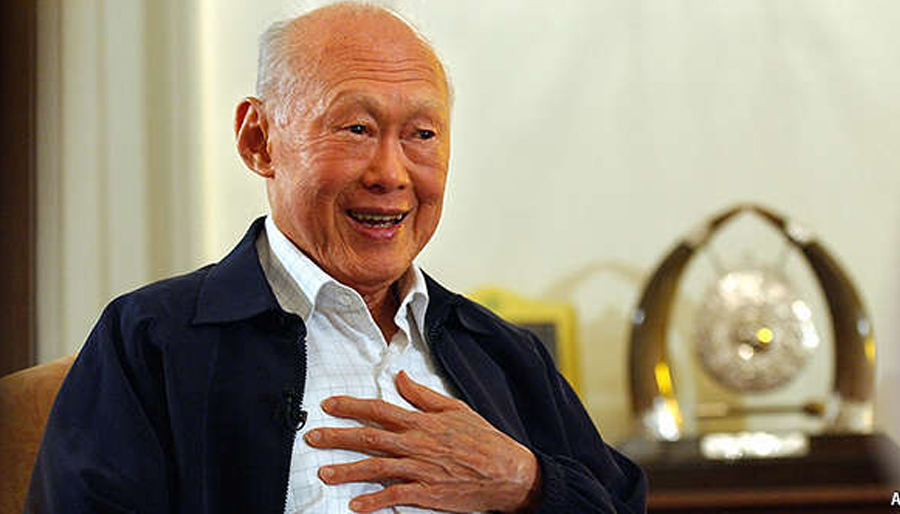8 Things the Philippine Government Can Learn from Lee Kuan Yew
Mar 24, 2015 • Tim Henares

Mar 24, 2015 • Tim Henares
[dropcap letter=”W”]e’ve all heard about people wishing for the Philippines to have something like a “benevolent dictator,” but nobody in history came remotely close to earning that accolade except perhaps the recently departed Lee Kuan Yew himself, often recognized as the father of modern Singapore.
That the man was controversial is a given. However, that the Philippines could learn a thing or two from what he has accomplished in his lifetime.
Why it might not happen: We are always afraid of people who skirt the line between being a Lee Kuan Yew and a Ferdinand Marcos, and we tend to err on the side of caution. For example, everyone thinks that a certain mayor from Mindanao would probably have the intestinal fortitude to make these difficult choices. Unfortunately, we are afraid of the risk of giving him too much power, which his numerous missteps even during his much-lauded tenure tend to highlight.
We can have nice things: we just need to habituate it.
Why it might not happen: We need a chain reaction to start somewhere. Political will to enforce the law, to make sure people don’t just get a slap on the wrist when they deserve worse, and the ability of anyone with enough money to walk away from virtually any accusation needs to stop. But who’s gonna stop it? The very people who intend to walk away from their own skeletons when the time comes? Good luck.
In 2014, the Corruption Perception Index ranked Singapore as the 7th least-perceived to be corrupt nation in the entire world. That’s already quite a few ways down, when it was tied with Denmark and New Zealand for first place in 2010. Meanwhile, in 2014, the Philippines is #85. The good news is that we are in the middle of the pack. The bad news is, that isn’t anything to be proud of.
Focusing on a meritocracy instead of merely friends and family helped Singapore get there. Obviously, there were friends and family who came into power, but it’s pretty hard to argue that Lee Kuan Yew’s son has acquitted himself well as prime minister, as opposed to the sons of other political stalwarts in Philippine history.
Why it might not happen: Even the more ardent of PNoy supporters stop at saying he’s “a good man who will not do anything evil,” but not doing anything evil is not the same as doing something good for the country. If our choices hover between systemic incompetence and unmitigated greed, we’re not really being given a lot of meritorious options now, are we?
It isn’t so much as you hide secrets, but that you learn to keep certain things that are rather irrelevant to your governance out of the public eye, like, say, your dating habits, or your fondness for video games. These are mere distractions from your task at hand.
Why it might not happen: Name me a single Philippine politician with good odds of winning 2016 who doesn’t have a social media account. I rest my case.
At present, 20% of Singapore’s annual budget is allocated for education. Couple this with the fact that their system is considered one of the best in the world, and you have a very educated citizenry with a high level of competence.
Guess what? The Philippines followed suit in 2014, with the Department of Education getting the lion’s share of the budget.
Why it might not happen: Whoops. This PCIJ expose on the corruption of the education sector doesn’t bode well now, does it?
In our government filled with third generation politicians and more, it would do good for them to step out of their family’s shadow and blaze their own trails.
Why it might not happen: Guess who’s calling himself the “Lee Kuan Yew of Makati.” Go ahead. Guess.
We’ve seen the small demonstrations of corruption in countries like Singapore. What we tend to realize is that when someone does rip money off, they tend to rip it off from outside sources and pump it into the country, rather than taking it from their own people. Obviously, this isn’t justifiable behavior. But the mindset is clear: Look towards benefitting your people instead of others.
Why it might not happen: The Filipino is still the best export of the Philippines in 2015. Sigh.
It would be a mistake to glorify Singapore while completely glossing over its glaring shortcomings. Freedom of speech isn’t an afterthought there, while corporal punishment and capital punishment are two things that don’t necessarily deter crime, statistically speaking. While Lee Kuan Yew would disagree with the preceding points, one thing our government can learn from him is that there is never a right time to rest on your laurels. He kept working, and working for the betterment of his nation. That desire for constant improvement can never be satiated.
Why it WILL happen: We always talk about the “bobotantes” and we keep harping about the shortcomings of the Filipinos. What we fail to understand is that all this chatter, all this clamor, is leading somewhere. It won’t happen overnight, but with each small triumph of the Filipino people in upholding what’s best for the Filipino people, we keep striving to improve. And as annoying all those who rally day in and day out may be to us, when we choose to not be apathetic to what they’re saying, we improve ourselves, as well.
In a perfect world, these activists will run out of things to rail against. There is nothing these people would want more than to get to that point, and we are slowly but surely inching our way towards that.
Input your search keywords and press Enter.
